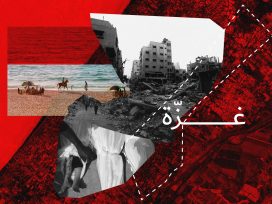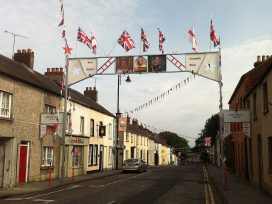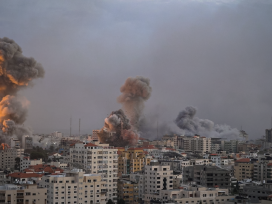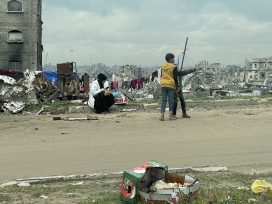On the geography of Israeli settler colonialism; queer perspectives on the war in Ukraine; the experiences of Afghan ‘returnees’; and the familiar pattern of UK Labourism.
In Soundings, Hashem Abushama shows how Israeli settler colonialism has unfolded within historic Palestine in ways specific to the locations and moments of colonisation. Moving from the West Bank refugee camp in which he grew up, to the site of the now-erased Palestinian village where his grandparents once lived, to the area of Haifa where Arab Jews were settled in the homes of displaced Palestinians, Abushama brings into sharp relief the different layers of colonial domination, as well as showing how these have been reshaped over time.
He notes how colonialism intersects with capital in different forms at different times: ‘I came of age at a time when taking loans, purchasing private cars and aspiring to move to “the city” (i.e. Ramallah) were becoming a norm in the West Bank This was capital making a larger claim on defining the horizon of possibilities for colonized Palestinian subjects. This was capital unfolding alongside patterned axes of difference.’
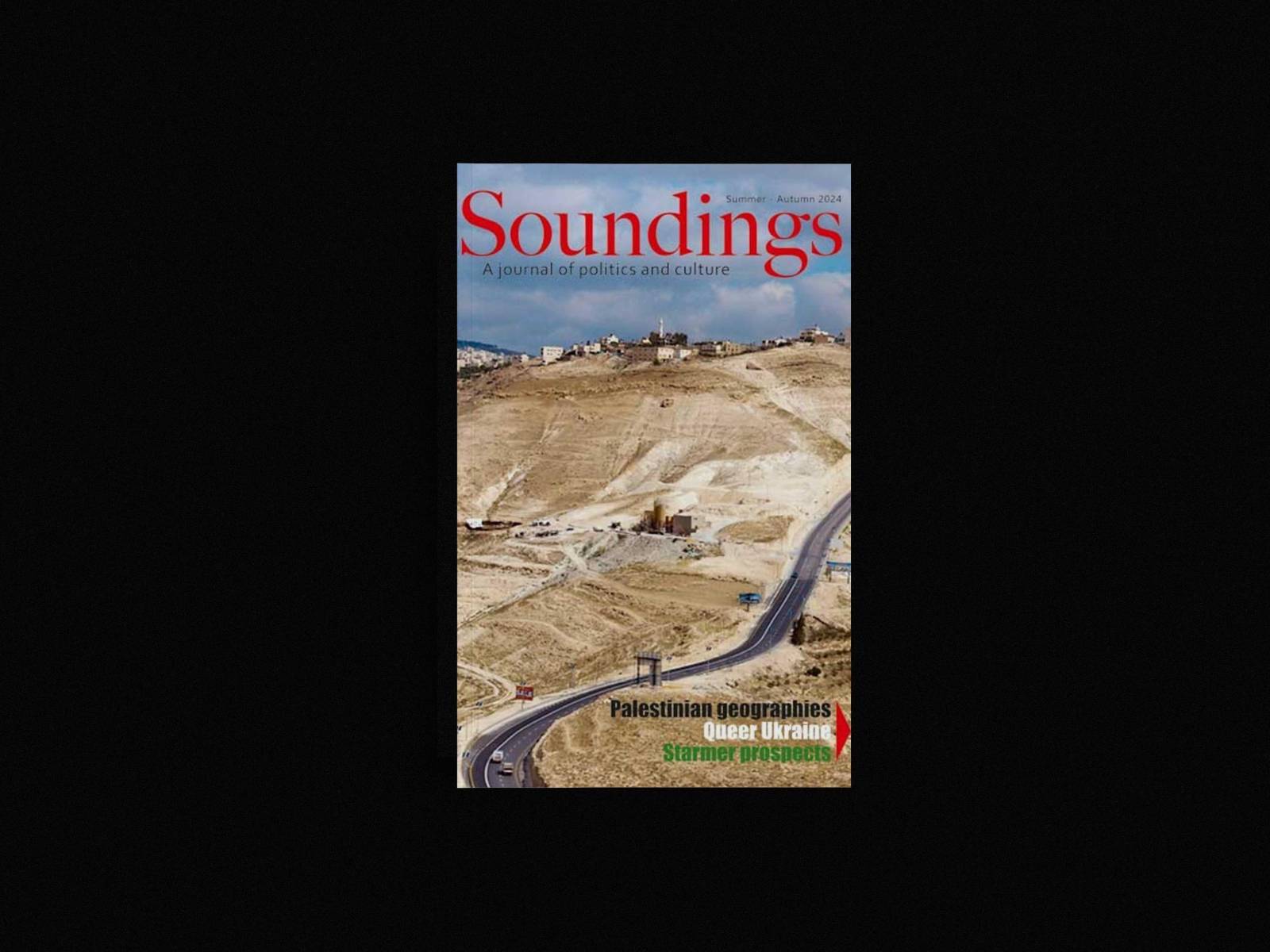
The genocide in Gaza is understood as a further ‘brutal manifestation’ of the intent to eliminate native Palestinians. ‘When viewed from al ‘Arub refugee camp, al Safiriyya, Jamassin and Haifa, it becomes clear that the Gaza Strip is facing another layering of dispossession. Gaza lies at the bottom of a hierarchy of life and violence that Israel imposes across the map of historic Palestine.’
However, it is precisely the contingency of this history that reminds us that the map is one ‘without guarantees’. There is ‘neither a guarantee that settler colonialism’s intent to eliminate the Palestinians will succeed, nor a guarantee that Palestinians will take up a particular form of resistance’. This is a map ‘where settler colonialism may, one day, cease to exist … where rehearsals of return will, one day, cease to be rehearsals’.
Queer perspectives on Ukraine
The DViJKA collective, a Kyiv-born duo now based in the UK, bring their queer perspective to bear on the Russian war against Ukraine. Since the Russian invasion, they say, queer Ukrainians have embraced anti-colonial nationalism and the concept of homonationalism. ‘How I like to think about queerness at this stage … is that in times of war, wherever we are, we might think of it as a temporary alliance between queer folks and the state.’
‘Russia makes Ukrainian nationalists … People that you’ve never been next to are now becoming people you’re serving with. Especially for queer folks, it was an urgent task for those who had the capacity, who decided to go and directly oppose occupation – because Russia is one of the most notoriously open queer-phobic empires … they don’t even sugarcoat it like others do.’
It is difficult being associated with NATO and militarism, but survival takes precedence. ‘Given that we know what happened in Chechnya to LGBTQIA+ people, we can confidently surmise what’s going to happen to queer Ukrainians if we are occupied. That is something I never want to live to see or to hear about from my loved ones. So I don’t know if I want to call it nationalism, I just want to call it survival – because that’s really what it is. If you’re faced with an immediate threat, your instinctive reaction is to survive, survive, survive.’
The bitter experiences of Afghan ‘returnees’
In 2004, Khadija Abbasi – a descendant of Iran-based Afghan refugees – was forced by the Iranian state to ‘return’ to Afghanistan, a country she had never seen. Her ‘voluntary return’ led to experiences that will be both familiar and unfamiliar to a readership based in Europe.
Abbasi documents the difficulties of language, culture, religious practice and social norms that she encountered, made all the more complex by her ethnicisation as a Hazara. ‘It was upon my arrival in Afghanistan and in interaction with non-Hazara Afghans that I realised I was a Hazara. In Afghanistan, one could not help becoming conscious of one’s ethnicity. Through references to my Mongolian facial features, Hazaragi dialect, use of Iranian Persian language, Shia religion and above all my returnee status, I had been instantly put into the Hazara ethnic category.’
The ‘returnees’ had to learn how to construct an attachment to their new country, though a process of socialisation that also involved local rejection and stigmatisation: ‘In Iran I was excluded because I was perceived to be from Afghanistan, and in Afghanistan I was ridiculed for coming from Iran.’
Keir Starmer’s Labourism
The fragmentation and collapse of the Johnson-Brexit electoral alliance – which for a long time sustained the Conservative Party through its many crises and incompetencies – was followed in due course by the election of a Labour government. Equally predictably, Keir Starmer’s government has followed Labourism’s usual practice of immediately seeking to co-opt and contain the popular disaffection that brought it into office. Hence Labour’s fiscal ‘realism’, its ‘value-led’ project, and its new version of managerialism.
The UK, argues John Clarke, is currently experiencing a transition ‘from an exhausted populism (desperately seeking new antagonisms) to a thin, but profoundly pacifying and restorationist, version of social democracy, seeking to reassure us that all will be well’. In the process, ‘“business as usual” can be restored – but more nicely’ – and ‘for now’.
Review by Sally Davison
Published 13 November 2024
Original in English
First published by Eurozine
Contributed by Soundings © Eurozine
PDF/PRINTNewsletter
Subscribe to know what’s worth thinking about.
Related Articles

Political failures since 7 October 2023 have had deep repercussions for Jews in liberal democracies. Not only are they divided over the Jewish state, they also feel alienated from societies in which antisemitism is regularly disguised as anti-Zionism, and in which the far-right has become Israel’s greatest champion.

Despite the uncertainty of recovery from ongoing war, Ukrainians are confronting Russian destruction and de-construction with daily acts of reconstruction. Marginalized landscapes, histories and stories are being rediscovered through a grassroots resistance founded on loss, where language and naming reclaim cultural foundations.
